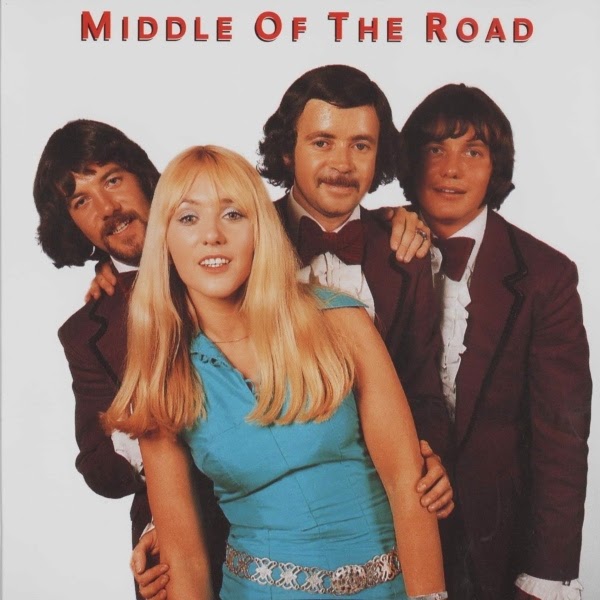Big Maceo Merriweather (March 31, 1905 - February 23, 1953)
was an American blues pianist and singer, active in Chicago in the 1940s.
 Born Major Merriweather on the outskirts of Atlanta, March
31, 1905 on his family's farm, one of 11 children. As he grew older he would
eventually stand well over six-feet and weigh more than 250 pounds, which
garnered his nickname “Big.” In 1920, the family moved to the College Park
section of town and the young Major developed an affinity for the piano. He
began working the cafes and honky tonks located on Harvard Street, as well as
playing at house rent parties and fish fries throughout the city.
Born Major Merriweather on the outskirts of Atlanta, March
31, 1905 on his family's farm, one of 11 children. As he grew older he would
eventually stand well over six-feet and weigh more than 250 pounds, which
garnered his nickname “Big.” In 1920, the family moved to the College Park
section of town and the young Major developed an affinity for the piano. He
began working the cafes and honky tonks located on Harvard Street, as well as
playing at house rent parties and fish fries throughout the city.
In 1924, at the age of 19, his family relocated to Detroit
where he began playing parties and clubs. In 1941, a desire to record led him
to Chicago where he met and befriended Tampa Red. Red introduced him to Lester
Melrose of Bluebird Records, who signed him to a recording contract.
Within just a few weeks Maceo was recording for the famed
Bluebird label. The first session would prove to be extremely fruitful for Big
Maceo, as his friends called him. He recorded a total of 14 sides, with the
first single becoming the most important of his career: “Worried Life Blues”,
which promptly became a blues hit and remained his signature piece.
 Other classic piano blues recordings such as "Chicago
Breakdown", "Texas Stomp", and "Detroit Jump"
followed. His piano
Other classic piano blues recordings such as "Chicago
Breakdown", "Texas Stomp", and "Detroit Jump"
followed. His pianostyle developed from players like Leroy Carr and Roosevelt Sykes, as well as from the Boogie-woogie style of Meade Lux Lewis and Albert Ammons. He in turn influenced other musicians like Henry Gray, who credits Merriweather to helping him launch his career as a blues pianist.
Unfortunately, Big Maceo's career was cut short after he
suffered a stroke in 1946 that left him almost completely paralyzed on his
right side. Over the next few years, he would attempt to record several more
times despite his handicap. Occasionally other pianists would play while he
sang, and other pursuits found him sharing the keyboards with a second performer
working the right side of the piano for him. Among the artists who filled this
role would be Eddie Boyd in 1947 for sides done for Victor and Johnny Jones in
1949 for Specialty.
Another pianist to occupy this spot would be Otis Spann, who
idolized Big Maceo. He would also sometimes fill in for the elder musician for
gigs whenever Maceo was unable to perform. All three of these musicians went on
to become headliners on the Chicago Blues scene, incorporating their lessons
learned at the side of Big Maceo. Spann would become the most prominent of all
the Chicago Blues pianists identified with his tenure in the Muddy Waters Band.
Big Maceo retired from playing in 1949 following yet another
stroke. Poor health and a lifetime of heavy drinking eventually led to a fatal
heart attack. He died on February 23, 1953 in Chicago.
He was an influential blues piano players of the 1940s and
his style had an impact on practically every post World War II blues pianist of
note. His most famous song, "Worried Life Blues" is a staple of the
blues repertoire, with artists such as Eric Clapton featuring it regularly in
concert. "Worried Life Blues" was in the first batch of songs
inducted into the Blues Hall of Fame "Classic Blues Recordings - Singles
or Albums Tracks" alongside "Stormy Monday," 'Sweet Home
Chicago," "Dust My Broom," and "Hellhound On My
Trail."
Left to right: Big Maceo Merriweather, Rose Allen Broonzy,
Big Bill Broonzy, Lil Green, "Jimmy", Lucille Merriweather, Tyrell
Dixon c. late 1940s.source: Harrison 1995, p. 25 ("courtesy Mike
Rowe"/Lucy Kate Merriweather); damages cleared up by Stefan Wirz. Photo
first published in Blues Unlimited 146 (autumn/winter 1984).
His sparse recordings for Bluebird were released in a double
album set as Chicago Breakdown, in 1975. They have since been reissued on a
variety of labels.
In 2002 he was posthumously inducted into the Blues Hall of
Fame.(Info edited from Wikipedia & All about Jazz)




















































